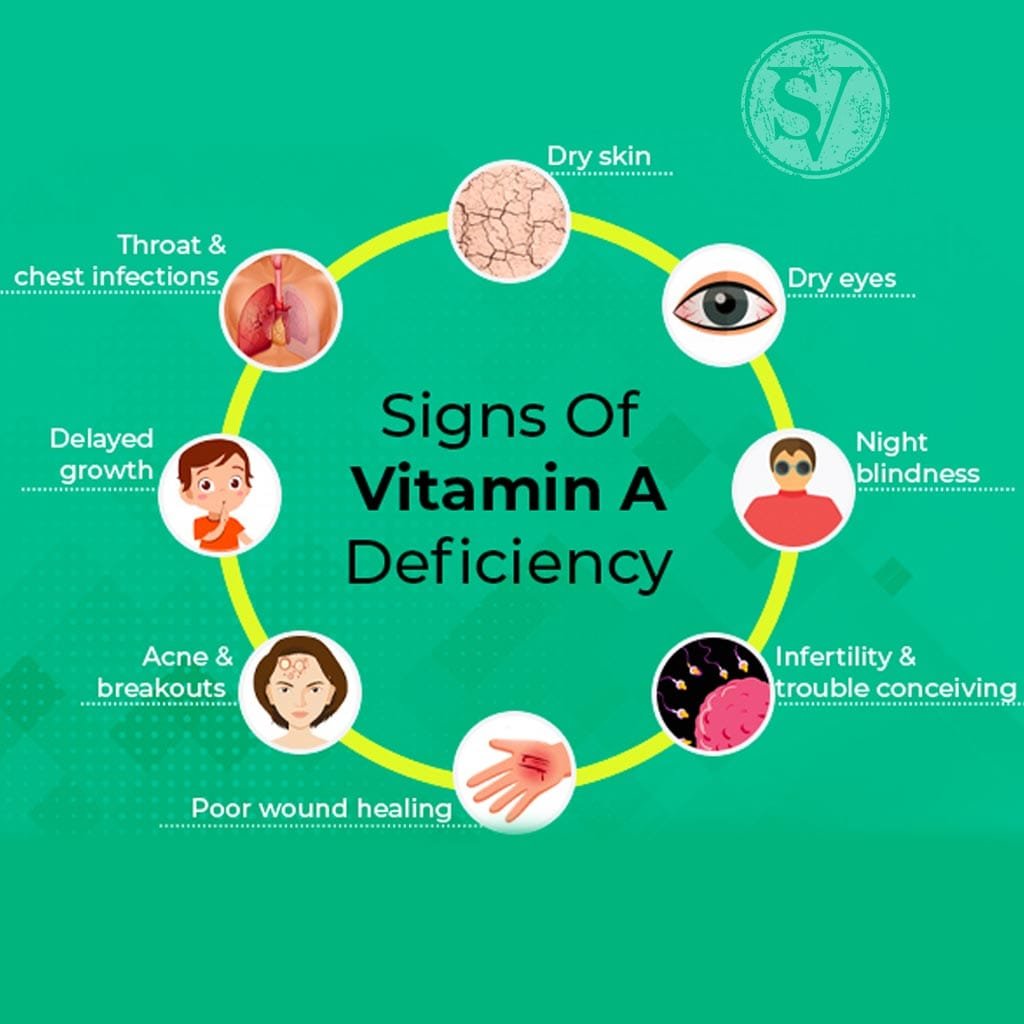Everything about Vitamin A Insufficiency
Vitamin A is an essential nutrient that plays a role in many crucial wholly functions. An insufficiency can occur when a person does not get adequately vitamin A to cover their body’s requirement, and may lead to concern symptoms. Here are the things to know about Vitamin A Insufficiency.
Dietary accretion is the easy way to way in enough vitamin A for most people. In some cases, doctors may approve supplements or other forms of vitamin A to help fill up very low stores.
Hold on to reading to learn about the starting point and symptoms of vitamin A Insufficiency, why vitamin A is important, and some foods that are rich in vitamin A.
Deficiency symptoms of Vitamin A Insufficiency
Indication of vitamin A deficiency may differ in hardness, and some people may have more grave symptoms than others. Below are some feasible symptoms people may exposure:
Issues related to vision
Vision matter is common in those with vitamin A deficiency.
The eyes may become very wilted at first, which may causes the cornea and retina.
Night blindness may also take-places as a result of vitamin A deficiency. This origin the person to be unable to see or have trouble seeing in low light, finally leading to complete blindness at night.
In serious cases, the eye continues to dry out, and stuff may build up in the cornea. This in turn may lead to the cornea becoming overcast, developing lesions, and being demolished.
Frequent infections
Vitamin A plays a key role in immune function. A person with a vitamin A insufficiency may experience more constant infections, as they cannot fight off these infections as easily.

Skin issues
Some people with vitamin A deficiency May heed problems with their skin, such as dehydration, itching, and scaling. Some may experience similar issues on the hair and skull as well.
Fertility issues
Vitamin A plays a role trust in Source in accordant and a deficiency may bread infertility and trouble conceiving a child.
Stunted growth
Vitamin A plays a part in give rise to healthy cells. Not having satisfactory of the key vitamin may delay growth or cause children to experience small growth or slow bone growth.
Deficiency causes
The cause of vitamin A deficiency is not getting enough vitamin A in the body or having an fundamentally issue that results in the body not absorbing or utilizing vitamin A efficient.
Some people may be higher at risk of vitamin A insufficiency, involve:
- Premature baby
- Pregnant or breast-feed people
- Infants and young children in originate countries
Why is vitamin A important?
Vitamin A plays a conclusive role in many activities in the body. Vitamin A is crucial for the function of:
- Vision
- The immune system
- The reproductive system
- Cellular communication
Foods rich in vitamin A
There are a number of easy dietary sources of vitamin A. This carries both plant and animal sources, so it is normally easy to meet gain recommendations when following a healthy, balanced diet.
Plant origin of vitamin A includes:
- Baked sweet potato: 1,403 micrograms
- boiled spinach: 573 mcg per 1/2 cup
- raw carrots: 459 mcg per 1/2 cup
- raw cantaloupe: 135 mcg per 1/2 cup
- raw mango: 112 mcg per whole mango
- raw sweet red peppers: 117 per 1/2 cup
- fortified breakfast cereal: 90 mcg per serving
Animal sources of vitamin A include:
- Ricotta cheese: 263 mcg per cup
- Atlantic herring: 219 mcg per 3 oz of picked fish
- Fat-free or skim milk with vitamin A added: 149 mcg per cup
- Hard-boiled egg: 75 mcg per egg
Also Read- What Is A Mental Illness Or A Mental Disorder?